14 March 2014, Dhaalu Kudahuvadhoo –
Transparency Maldives conducted Democracy Talks in Dhaalu Atoll Education Centre for students of Grade 9. The main objective of this program was promoting values of democracy among children for increased civic participation. The content of the sessions included fundamentals of democracy, human rights, civic responsibilities, the role of young citizens and how they can actively engage themselves in their local community. 32 students from grade nine participated in the program. Students found the program very useful and was well received by participants and school staff alike.
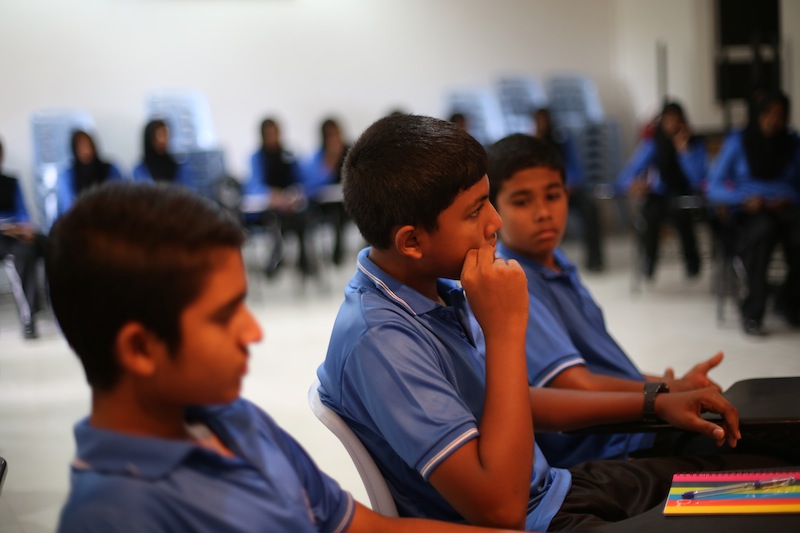
Students were given an overview of Transparency Maldives as a civil society organization fighting corruption and promoting good governance.
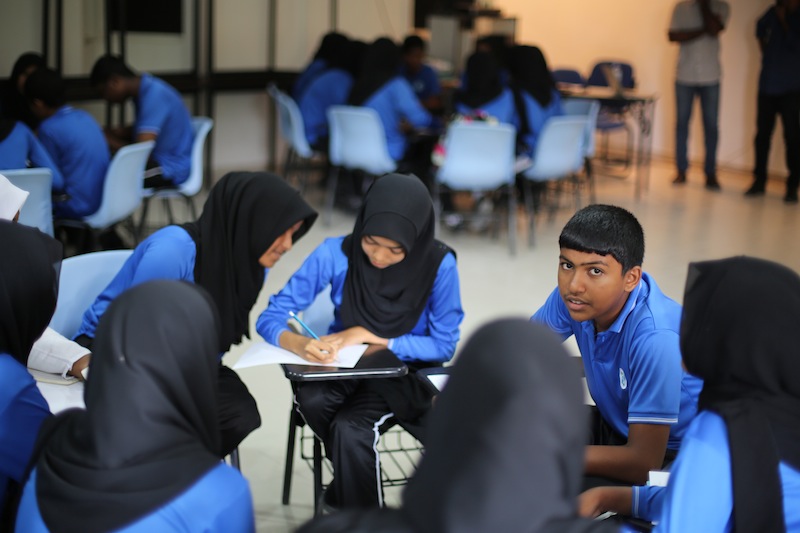
What do we mean by democracy? We have become more familiarised with the term and the processes associated with democracy more recently with the onset of democratic developments in Maldives since 2008. The recent wave of democratisation known as the “Arab spring (Arabeenge Bahaaru moosun)” is an example of recent democratic developments among Muslim/Arab nations.
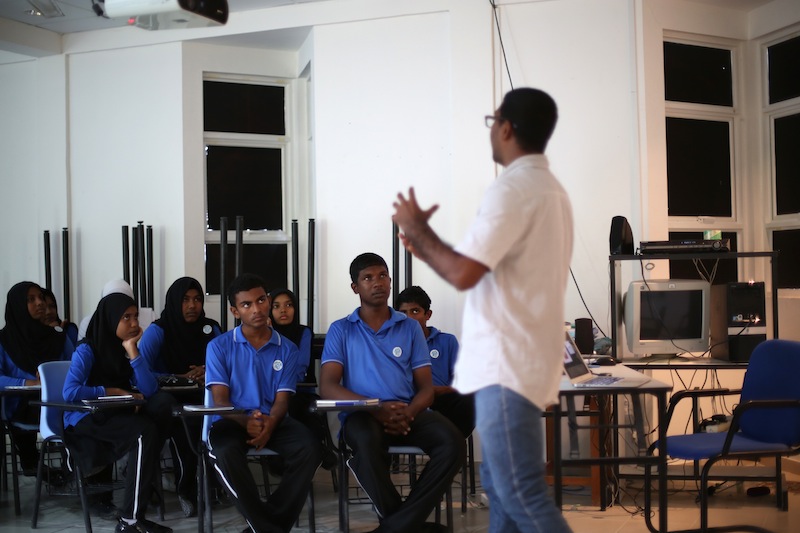
One of the sessions on this training was introducing democracy as a form of government where the constitution guarantees basic personal and political rights, free and fair elections, independent courts of law and equal rights. We discussed the importance of bringing together diverse groups of people and engaging them in dialogue, and the protection of minority rights as a core concept of democracy.
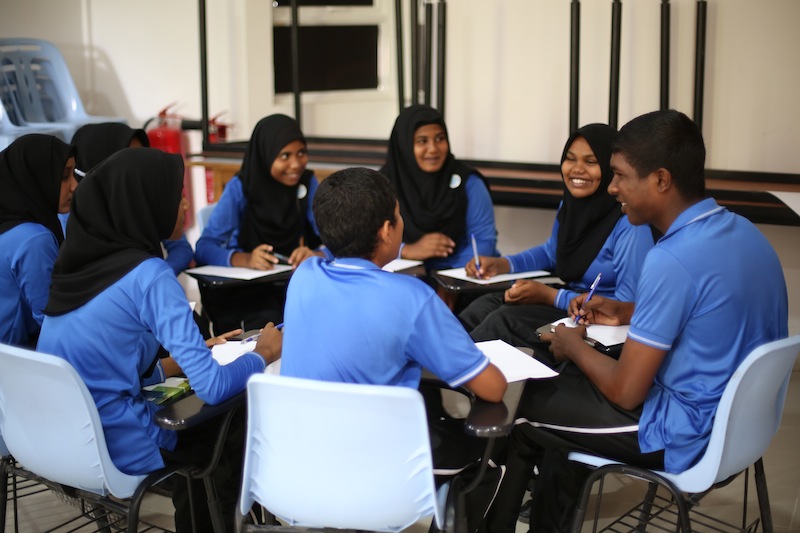
Students discussing the importance and advantages of living in a country with a democratic form of government. They also discussed and identified issues and problems with alternative types of regimes such as a military dictatorship.
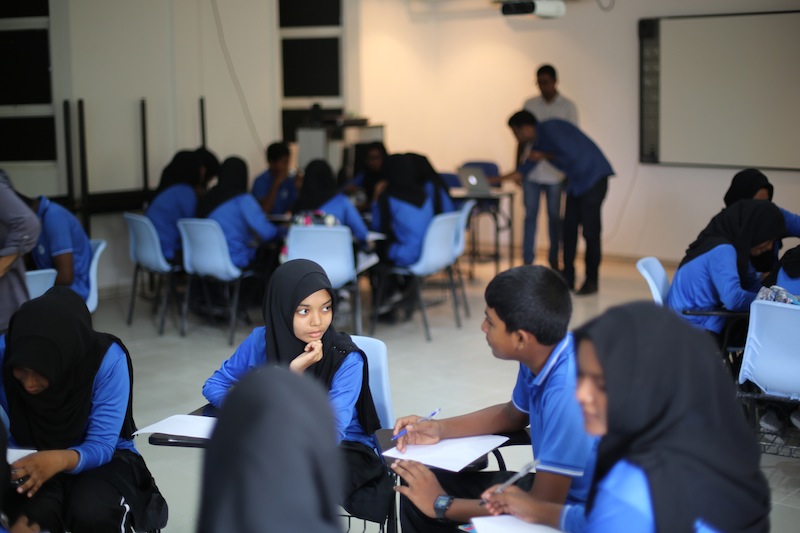
Students discussed ideas on identifying community problems and engaged in mapping exercises. Later on, they were divided into groups where each group was given a set of community role cards and they were asked to choose roles they thought that they played in their community. The purpose of this activity was for the students to understand that they too had a role to play in their community, and encourage them to support their communities directly and indirectly, through their participation.
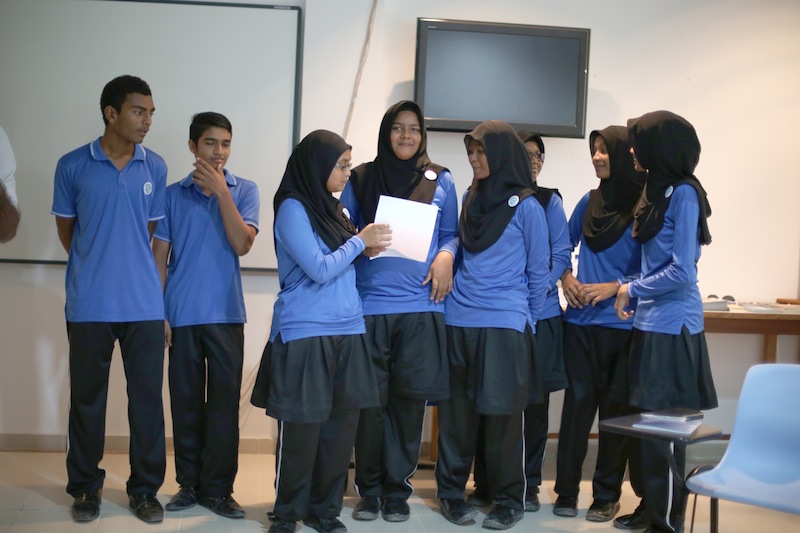
Students discussed issues in their community and presented ideas on addressing such issue in their community as “positive citizens”, while being engaged in their community life.
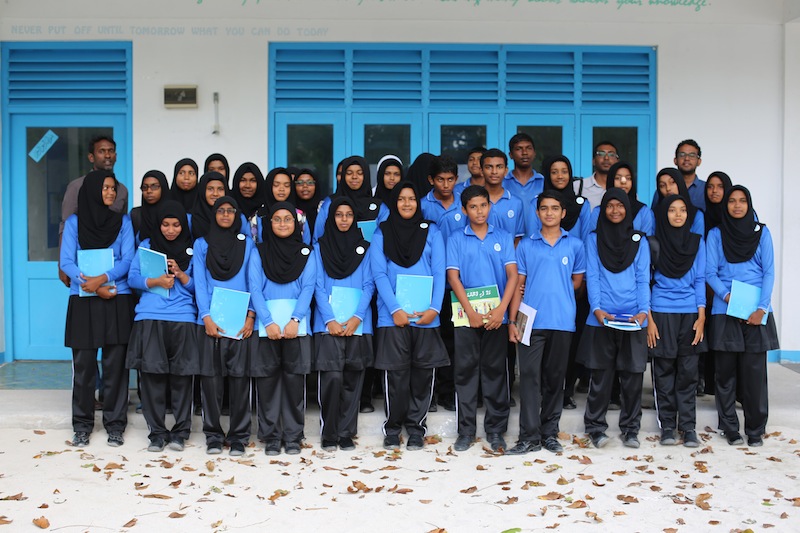
Based on the feedback gathered at the end of the program, students expressed that they learned much from the sessions on basic principles of democracy, role of state institutions, and the importance of citizens’ participation in their own communities.
We would like to thank Dhaalu Atoll Education Centre’s administration and the students for giving us this opportunity.
CPP is supported by the International Foundation of Electoral Systems (IFES) and funded by the United States Agency for International Development (USAID).